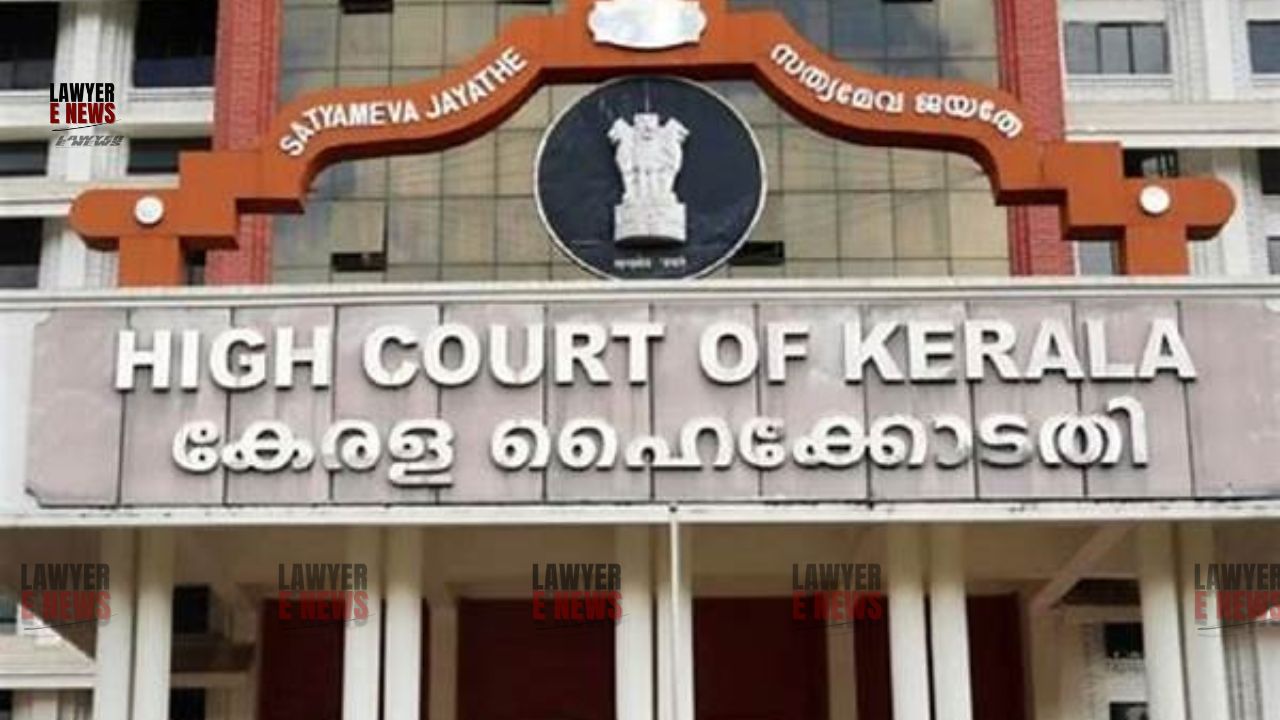-
by Admin
15 February 2026 2:16 AM



"Section 21 of the [Special Marriage] Act applies to deemed marriages under Section 15, and succession to the property of the parties to such marriage will be governed by the Indian Succession Act, 1925." – Justice Sathish Ninan.
In a recent decision, the Kerala High Court has ruled that the Indian Succession Act, 1925, governs the inheritance of properties for couples whose marriage is registered under the Special Marriage Act, even if the marriage was originally performed according to religious customs. The ruling, delivered by a bench comprising Justices Sathish Ninan and Johnson John, settles a long-standing family dispute over property inheritance, where the court upheld the validity of an oral gift under Mohammedan law but applied the Indian Succession Act to determine the heirs' shares.
The dispute, stemming from a suit for partition, involved the children of Adam and Ayisha, who were married according to religious rites but later registered their marriage under the Special Marriage Act in 2002. The plaintiff, K.M. Mohamood, sought partition of a 72-cent property in Kozhikode, which had been orally gifted by Adam to Ayisha in 1963. After Ayisha’s death, Adam attempted to transfer the entire property to some of their children through deeds, which were later challenged as fraudulent.
The primary legal issue revolved around the conflict between the Indian Succession Act and Mohammedan law in governing the inheritance of Ayisha’s property after her marriage was registered under the Special Marriage Act.
Applicability of the Indian Succession Act:
The crux of the High Court's ruling was the applicability of the Indian Succession Act, 1925, to the estate of Ayisha. The defendants argued that since Adam and Ayisha were originally married under Muslim rites, Mohammedan law should govern the division of Ayisha’s property after her death. However, the court referred to Section 21 of the Special Marriage Act, which mandates the application of the Indian Succession Act for marriages registered under the Act.
The court rejected the argument that Section 21 applies only to marriages solemnized under the Special Marriage Act, clarifying that the deeming provisions of Section 18 treat a registered marriage as if it were solemnized under the Act. This interpretation, the court emphasized, was in line with the legislative intent to confer the benefits of the Special Marriage Act, including succession rights, to couples who registered their marriages under the Act after having already married according to religious or customary rites.
Justice Ninan, writing for the bench, underscored the importance of this provision: “The marriage between the first defendant and Ayisha, having been registered under Section 15 of the Special Marriage Act, is deemed solemnized under the Act, and the Indian Succession Act, 1925, will apply to the succession of Ayisha’s property.”
While the court applied the Indian Succession Act to determine the inheritance, it upheld the validity of the oral gift made by Adam to Ayisha in 1963, recognizing it as lawful under Mohammedan law. The defendants had argued that an "oral sale," as described in some documents, was invalid under the Transfer of Property Act. However, the court clarified that the term used did not change the nature of the transaction, which was an oral gift, valid under Islamic law.
The court emphasized that even though the documents referred to an "oral sale," they should be interpreted as referring to an oral gift, and the gift was validly made under Mohammedan law. "Merely because Exts. A2 and A4 mentioned the transaction as ‘oral sale’ need not lead to the conclusion that the transaction was an oral sale," noted the court.
Another key issue was whether Adam’s later deeds, which purported to transfer the entire property to some of his children, were valid. The court ruled that Adam could not have transferred the entire property after Ayisha’s death because the oral gift had already transferred ownership to Ayisha. After her death, Adam could only transfer his inherited share, not the entire property. Therefore, the subsequent deeds were only valid to the extent of his legal share, but not for the entire property as claimed by some defendants.
The appeals filed by both the plaintiff and the third defendant challenging various aspects of the trial court's decision were dismissed. The High Court upheld the trial court’s preliminary decree for partition and reaffirmed that the Indian Succession Act governed the division of Ayisha’s property.
In dismissing the appeals, the Kerala High Court confirmed the application of the Indian Succession Act to property succession for marriages registered under the Special Marriage Act, clarifying that even when couples marry under religious rites, registering their marriage under this Act alters the legal framework for inheritance. The decision sets a clear precedent for similar cases involving the intersection of personal laws and the Special Marriage Act.
Date of Decision: 10th September 2024
K.M. Mohamood vs. K.M. Nazneen and Others
